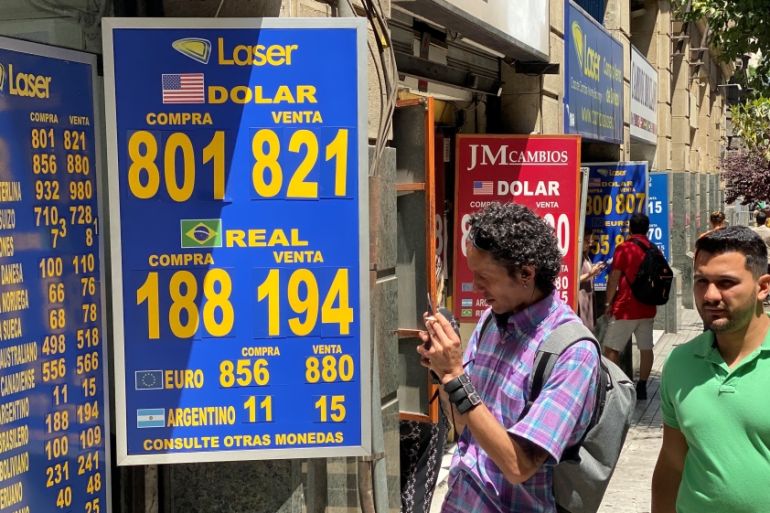Chile’s central bank plans to spend $20bn to save its weak peso
The Chilean peso hit an all-time low for the second consecutive day as anti-government protests grew more violent.

Chile’s central bank will sell up to $20bn in foreign currency starting Monday in a bid to stabilize the local currency, the monetary authority has said in a statement after the peso hit a new all-time low.
The intervention programme is to last through May 29, 2020, the statement said. Chile’s peso plummeted to a new low for the second day in a row at market close on Thursday following more than a month of protests over inequality that turned increasingly violent again this week.
Keep reading
list of 3 itemsDockworkers in Chile paralyse ports ahead of broader strike
Anger in Chile as ally of president says rights abuses necessary
“The events that have occurred in our country in recent weeks have affected the normal functioning of the economy,” the bank’s statement said.
The programme will consist of a possible $10bn in dollar sales on the spot foreign exchange market and up to another $10bn in sales of “exchange hedging instruments”.
“This exceptional measure is consistent with our monetary policy, based on inflation targeting and exchange rate flexibility,” the statement said.
It said it would “continue to use all the tools available” to maintain the normal functioning of internal and external payments, and achieve its 3-percent annual inflation target.
At least 26 people have been killed, more than 13,000 have been injured and 25,000 detained amid demonstrations, looting and arson attacks on supermarkets, metro stations, hotels and churches. Tuesday night saw almost 100 arson and looting attacks and clashes with police around the country.
The bank was expected to slash its benchmark interest rate to 1.5 percent in December, according to a monthly poll of analysts published on November 12, as continuing unrest and sputtering growth plague the copper-producing Latin American nation.
Analysts said they expected consumer prices to remain unchanged in November, but rise slightly by 0.1 percent in December, with annual inflation expected at 2.7 percent, just below the bank’s target.